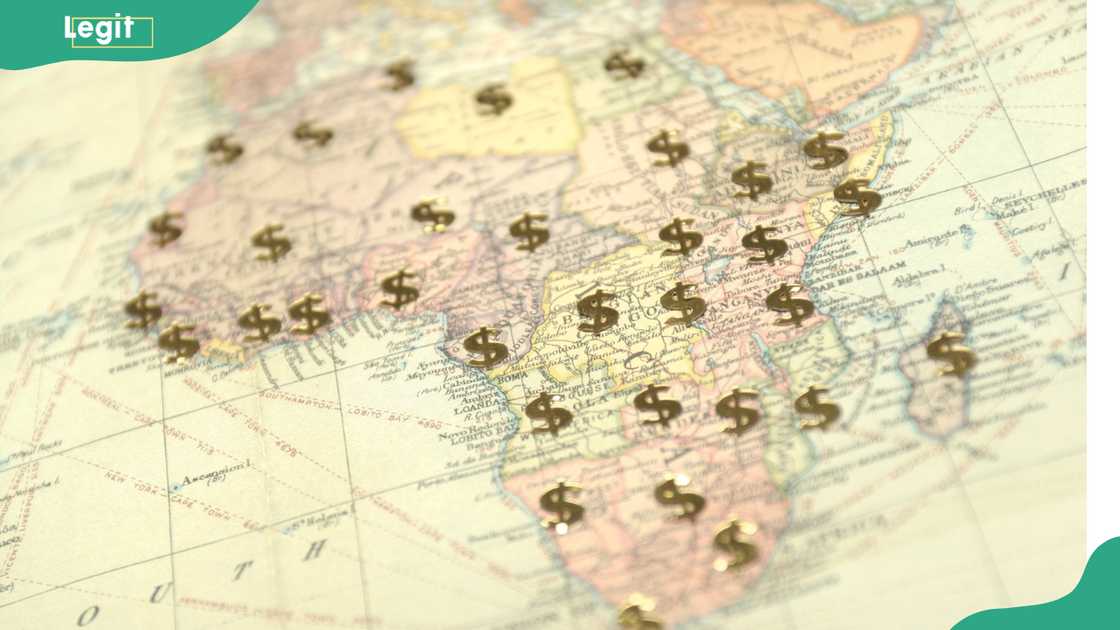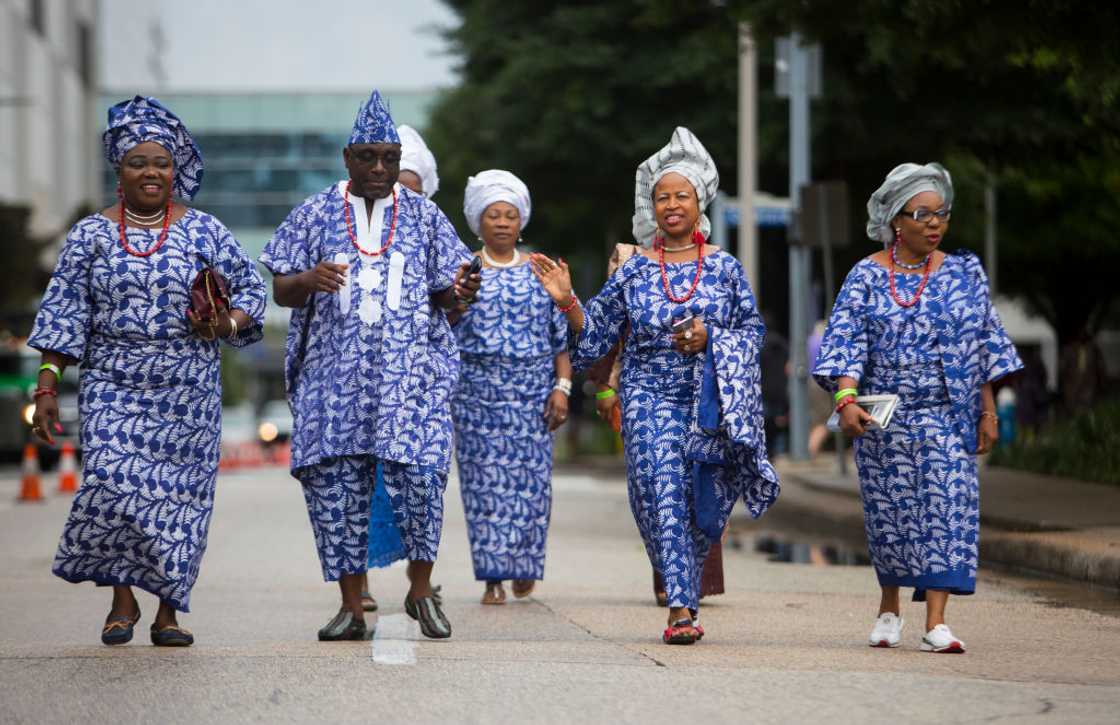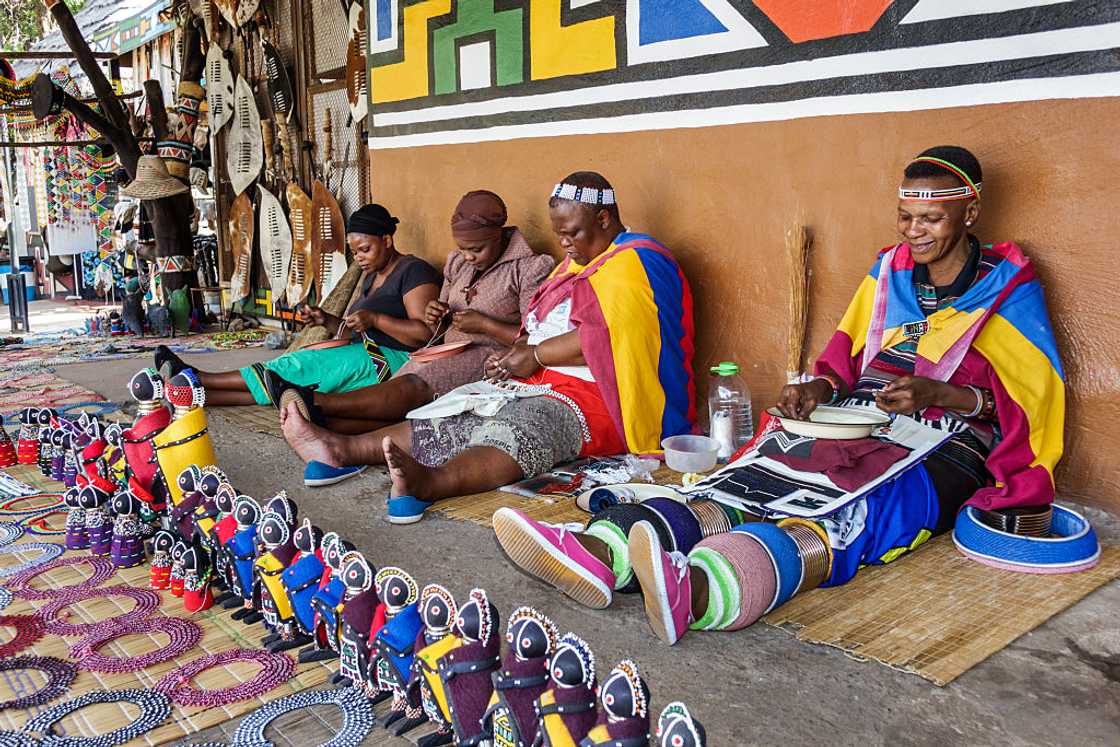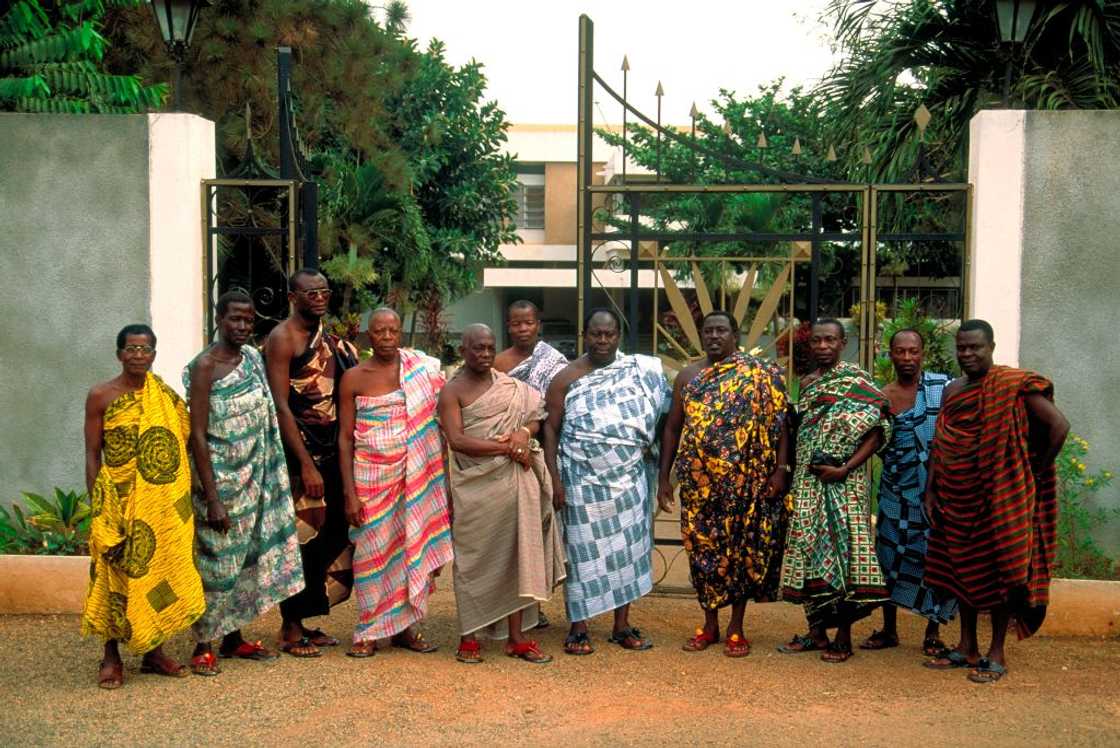Which is the richest tribe in Africa? Top 10 contenders across the continent
Wealthy African tribes serve as economic engines, propelling development and expansion on the African continent. Their economic success can promote growth in adjacent nations through trade, investment, and infrastructure projects. What is the richest tribe in Africa? Discover the richest tribe in Africa based on economic power, business influence, and overall wealth.

Source: Getty Images
TABLE OF CONTENTS
When compiling this list of the richest tribes in Africa, we considered many factors, such as economic activities, natural resources, cultural and historical influence, and international and domestic investments. We also looked at the backgrounds of some of the continent's wealthiest people.
Top 10 richest tribes in Africa
While Africa may be referred to as a low-middle-income region, there is no denying that some tribes in various countries generate substantial wealth. Most tribes are mostly built on agriculture, human resources, industry, and trade. Below are some of the richest tribes in Africa.
| Tribe | Country |
| Igbo | Nigeria |
| Yoruba | Nigeria |
| Zulu | South Africa |
| Pedi | South Africa |
| Hausa-Fulani | Nigeria |
| Suri | Ethiopia |
| Ashanti | Ghana |
| Xhosa | South Africa |
| Oromo | Ethiopia |
| Kikuyu | Kenya |
1. Igbo (Nigeria)
The Igbo people are an ethnic group in Nigeria. They are primarily found in Abia, Anambra, Ebonyi, Enugu, and Imo States. The Igbo are widely known for their rich cultural heritage and as the richest tribe in Nigeria and Africa. The Igbo tribe is among the most influential and successful tribes in Nigeria.
They are widely recognised for their entrepreneurial spirit and are actively involved in the business sector, including trading, manufacturing, and real estate. The tribe's main exports include palm oil and palm kernels. Trading, crafting, and wage labour are also crucial in the Igbo economy.
In addition, the community's high literacy level has helped numerous people become government employees and entrepreneurs in the decades after Nigeria gained independence.
2. Yoruba (Nigeria)

Source: Getty Images
Yoruba is one of Nigeria's three largest ethnic groups, concentrated in the country's southwestern part. The Yoruba tribe is one of the richest and most economically stable in Nigeria. They are well-known for their entrepreneurial spirit and significant contributions to Nigeria's economy.
Cultivating crops such as yams, cocoa, and cassava has been a source of their sustenance and financial wealth. The artistic traditions of Adire textile production and the intricate bronze casting of Ife are also successful industries within the Yoruba tribe.
3. Zulu (South Africa)
The Zulu are a native people of Southern Africa of the Nguni. They are the largest ethnic group and nation in South Africa and are famous for their influence on the country's politics and economy. Many prominent South African businessmen and politicians are of Zulu descent.
The Zulu people's main economic activities have traditionally been horticulture and tending to cattle and goats. Cattle are usually used as a measure of wealth and a source of sustenance.
4. Pedi (South Africa)

Source: Getty Images
Pedi are Bantu-speaking people primarily situated in Limpopo, Gauteng and northern Mpumalanga. According to South African Tourism, their economy primarily depends on their livestock raring and agricultural resources. Cattle, goats, and sheep are believed to represent wealth and status.
The markets of Pedi communities provide a stunning backdrop for their craftsmanship. Pedi artisans blend traditional skills with a commercial spirit, creating intricately woven baskets and vibrant beadwork.
5. Hausa-Fulani (Nigeria)
The Hausa-Fulani are an ethnic designation that includes the Hausa and the Fulani. They are primarily found in the Northern region of Nigeria and are influential in agriculture, trade, and politics.
The Hausa-Fulani people are known for their regional and international trade. They mainly cultivate crops such as millet and sorghum, groundnuts, and cotton. They are also skilled at crafts, such as leatherworking. Leather goods and tourist crafts are quite famous.
6. Suri (Ethiopia)
The Suri people have three ethnic groups: Chai, Timaga, and Baale. They primarily reside in the Suri woreda of southwestern Ethiopia. Despite speaking different languages, these groups are politically, territorially, culturally, and economically similar.
The Zuri tribe's wealth is derived from its land, which boasts fertile soil for agriculture, rivers abundant with aquatic life, and forests that supply timber and medicinal herbs. Its cultural heritage, encompassing textiles, pottery, and artworks, also serves as a significant source of income.
7. Ashanti (Ghana)

Source: Getty Images
The Ashanti, or Asante, are the dominant ethnic group of a powerful 19th-century empire and today one of Ghana's leading ethnic groups, with more than two million members concentrated in south-central Ghana.
The Ashanti ethnic group is wealthy due to large gold deposits mined within the region's international borders. Before the discovery of gold, its inhabitants were skilled merchants, farmers, and artisans. The majority of the region's workforce is self-employed without employees.
8. Xhosa (South Africa)
The Xhosa people are a Bantu ethnic group native to South Africa. They are the second-largest ethnic group in South Africa and have produced many prominent figures in politics and business, including Nelson Mandela.
The Xhosa are farmers who also keep livestock. Cattle are especially important as a form of wealth. Agriculture and unique artworks are also the main activities of this tribe.
9. Oromo (Ethiopia)
The Oromo people are a Cushitic ethnic group native to the Oromia region of Ethiopia. They are the largest ethnic group in Ethiopia, comprising about 40% of the country's population and are engaged in many occupations. Their wealth primarily comes from agriculture, with the fertile highlands and lowlands supporting the cultivation of crops such as coffee and barley.
They are also involved in livestock farming and various commercial activities, contributing significantly to their economic status. In recent decades, they have also diversified into trades and small businesses.
10. Kikuyu (Kenya)
Kikuyu are Bantu-speaking people who live in the highlands of south-central Kenya, near Mount Kenya. With more than 4.4 million people, they are the largest ethnic group and the wealthiest tribe in Kenya. The tribe has dominated business and politics in Kenya since independence in 1963.
They are majorly known for producing high-quality farm products, such as milk, tea, coffee, potatoes and bananas. In addition to farming, Kikuyu are also good traders. Several of them have thrived in business, making the region produce some of the richest people in Kenya, such as the Kenyatta family, SK Macharia, and Chris Kirubi family.
Which tribe is the richest in Africa?
The richest tribe in Africa is often considered to be the Igbo, a tribe from Nigeria. The Igbos are well-known for their rich cultural heritage and entrepreneurial spirit.
Which tribe is the richest in Ethiopia?
The richest tribe in Ethiopia is the Oromo. The Oromo are the largest ethnic group in Ethiopia, and their wealth comes from agriculture, livestock farming, and various commercial activities.
The richest tribe in Africa is reportedly the Igbo of Nigeria. Other richest African tribes include the Ashanti (Ghana) and Zulu (South Africa). These tribes significantly influence their respective countries and contribute substantially to the economy through various means, including trade, commerce, agriculture, and political power.
Legit.ng recently published a list of the richest Nigerians. Nigeria is one of the wealthiest countries in Africa, with numerous millionaires who live affluent lives. Their multiple income streams contribute to their significant net worth.
Are you wondering who tops the list of the richest people in Nigeria? The list includes people from diverse professional backgrounds, from businessmen running multinational firms to political heavyweights.
Source: Legit.ng


